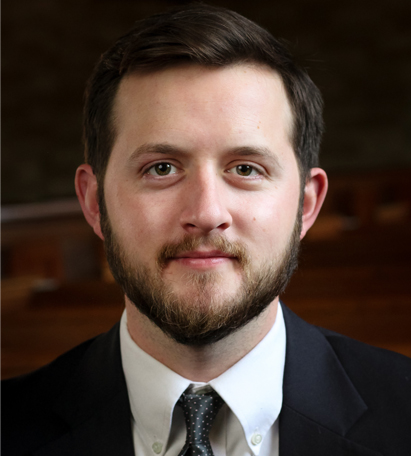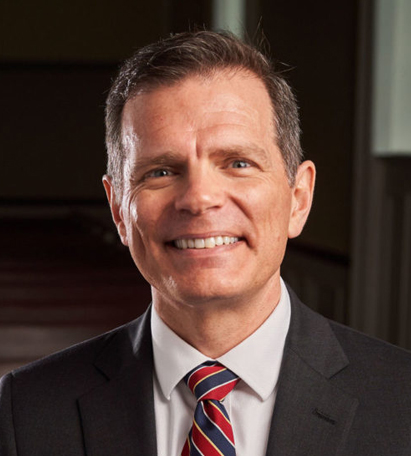Jonathan L. Cruse and J. V. Fesko
New Horizons: February 2023
Mentoring Across the Generational Divide
Also in this issue
Mentoring Across the Generational Divide
by Judith M. Dinsmore
Our Company, Our Family, Our Future
by Joel M. Ellis Jr.

Ministry mentors play a vital role in the life of the church as they guide, direct, and counsel aspiring and young ministers. The mentor-mentee relationship parallels patterns “common to human actions and societies,” to borrow a line from the Westminster Confession of Faith (1.6). Whether in business, sports, or education, the inexperienced seek the wisdom and guidance of older, wiser, and more experienced practitioners. The Scriptures, however, paint the mentor-mentee relationship in a slightly different light.
One of the earliest mentions of the Holy Spirit comes when God endowed Oholiab and Bezalel with the “Spirit of God, with ability and intelligence, with knowledge and all craftsmanship,” so they could construct the desert tabernacle (Exod. 31:3). But the Spirit’s gifts were not restricted to them alone. God filled them with the Spirit, and “inspired [Bezalel] to teach, both him and Oholiab” (Exod. 35:34). In other words, both men were supposed to build the tabernacle and teach others to do the same; they were supposed to mentor people to construct the meeting place between God and man. The gifting of Oholiab and Bezalel is a typological portrait of Christ’s outpouring of the Spirit and giving gifts to the church: “And he gave some . . . pastors and teachers; for the perfecting of the saints, for the work of ministry, for the edifying of the body of Christ” (Eph. 4:11–12 KJV).
Christ gives gifts through the Spirit for the sake of building the meeting place between God and man, the church. But just as Oholiab and Bezalel were gifted and instructed others, so too Christ has given pastors and teachers to instruct others. While these pastors and teachers are supposed to instruct the whole church, they have a special responsibility to mentor aspiring and young ministers.
The mentor-mentee relationship appears prominently in the Scriptures, as Jesus himself instructed and mentored his disciples, the future leaders of the church. The Apostle Paul mentored Timothy and documented his counsel in two letters to the young pastor. The pattern appears in the post-apostolic church where the mentor-mentee line runs from the Apostle John to Polycarp (69–155), the bishop of Smyrna, and to Irenaeus (ca. 130–ca. 202), the bishop of Lyons. John’s instruction in wisdom came to fruition in Polycarp’s willingness to be a martyr for Christ and in Irenaeus’s defense of the faith in his Against Heresies, as he refuted those who denied the incarnation of Christ. What mentors do is share their gifts of the Spirit so others can contribute to building the church. By virtue of their union with Christ, they share in Christ’s “graces, sufferings, death, resurrection, and glory,” and because they are united to their disciples through the bond of the Spirit, “they have communion in each other’s gifts and graces” (WCF 26.1).
Our contention is that these types of mentoring relationships are urgently needed in the church today. Consider the following five points about why they are important and what they should look like.
 |
First, they combat the unhealthy obsession with youth culture that has gripped our world. The most successful brands and companies and products are those that tap into the youth market. Pop music, plastic surgery, and the boom of cosmetic companies attest to people’s desire to look younger. The church has often sadly followed suit in the execution of her ministries. When a school district in 1963 was basing their curricula off the liking of the students, Southern writer Flannery O’Connor weighed in by quipping, “[The student’s] taste should not be consulted; it is being formed.” Learning from those who have gone before situates us to say with Paul, “When I was a child, I spoke like a child, I thought like a child, I reasoned like a child. When I became a man, I gave up childish ways” (1 Cor. 13:11).
Second, these mentoring partnerships offer protection against the assaults of the culture. We have entered a post-Christian age, and the majority of society is no friend to our faith. It is becoming all too common to hear of “de-conversion” stories, even from prominent leaders and pastors in the church who have been swayed by the doctrinal winds of the day. Might this not be mitigated if Christians in general, and pastors in particular, took to heart the reality that there is strength in numbers (Eccles. 4:9–11)? We would do well to look to a method such as Calvin’s company of pastors as a means of fortifying our ministry against the waves of the world. We can’t do it on our own, and we aren’t meant to.
Third, the ubiquity of blogs and podcasts has given many young ministers the unhealthy notion that they can (or should) become celebrities. Participating in the conference circuit isn’t the goal; holiness and growth in grace is. The willingness to sit under a mentor is a step in the right direction of accepting that there are seasons to listen and learn. After all, Paul trained for some seventeen years before he began his ministry!
Fourth, and perhaps most importantly, our theology teaches us that we are a work in progress, constantly being sanctified by Christ’s Spirit through the means of grace. We have not “arrived,” nor will we until called home to glory. That reason alone should impress us with the importance of investing in a relationship that, Lord willing, will result in maturity and greater growth in godliness. We are never too young or too old to start. The authors know of an eighty-five-year-old man who approached a younger man and asked to be mentored by him so he could better understand the Scriptures. What humility!
On the subject of sanctification, remember that these relationships will inevitably be infiltrated by sin. Mentors and mentees sin. But we learn in these moments, too. In fact, there may be nothing more valuable for a maturing Christian than to witness personal failures handled with humility and grace. The church does not need proud pastors, and yet arrogance and self-defense are our natural instincts unless we are taught a better way. A mentor isn’t a sinless saint, but a faithful servant who consistently points to the sinless Savior.
Finally, keep in mind that love must undergird the mentor-mentee relationship. For mentoring to be effective, we must live with our hearts wide open to one another (2 Cor. 6:11). Titus was not merely Paul’s student. He was his “true child” in the faith (Titus 1:4, see also 1 Tim. 1:2 and Philem. 10). Regarding his apprentice, John Calvin once wrote, “I would be very cold-hearted if I did not care deeply for Beza, who loves me more than a brother and honors me more than a father.”
Mentors play a vital role in teaching future generations of ministers because learning theology and ministry is not only about book smarts, life hacks, or tips for productivity. Theology is an inherently moral exercise that requires virtue (1 Pet. 1:5). Remember that Paul told the Corinthians not simply to learn from him but to live like him:
For though you have countless guides in Christ, you do not have many fathers. For I became your father in Christ Jesus through the gospel. I urge you, then, be imitators of me. (1 Cor. 4:15–16)
A mature mentor can pass on valuable wisdom to his mentee simply by living in obedience to Scripture. Reading about suffering is very different from experiencing it. Preaching about holiness is not the same as practicing it. Doctrine is not merely about passing on data but about learning to love and fear the Lord: “The fear of the Lord is the beginning of wisdom” (Ps. 111:10; Prov. 1:7). Forged on the anvil of pastoral ministry, and communicated through mutual love and commitment, a mentor teaches an aspiring pastor how to live the theology of the cross before our triune God and his people.
J. V. Fesko, professor of systematic theology at Reformed Theological Seminary in Jackson, Mississippi, has mentored Jonathan L. Cruse, pastor of Community Presbyterian in Kalamazoo, Michigan, since Cruse was his student at Westminster Seminary California. New Horizons, February 2023.
New Horizons: February 2023
Mentoring Across the Generational Divide
Also in this issue
Mentoring Across the Generational Divide
by Judith M. Dinsmore
Our Company, Our Family, Our Future
by Joel M. Ellis Jr.
© 2025 The Orthodox Presbyterian Church